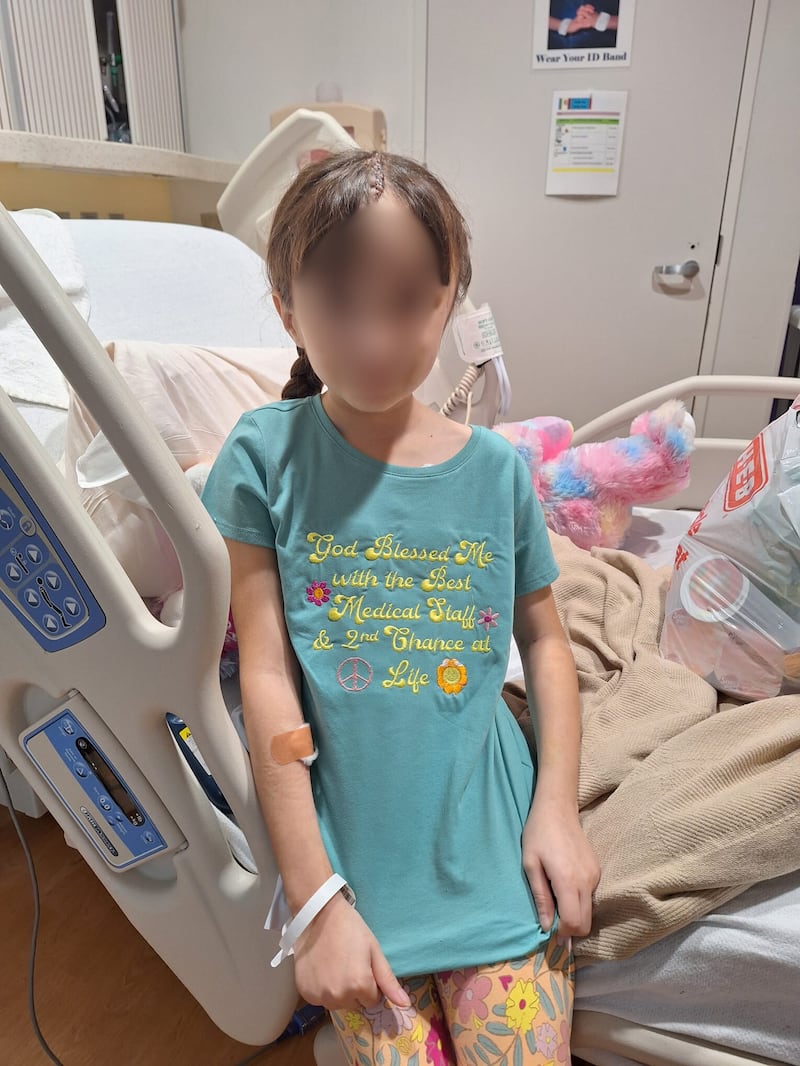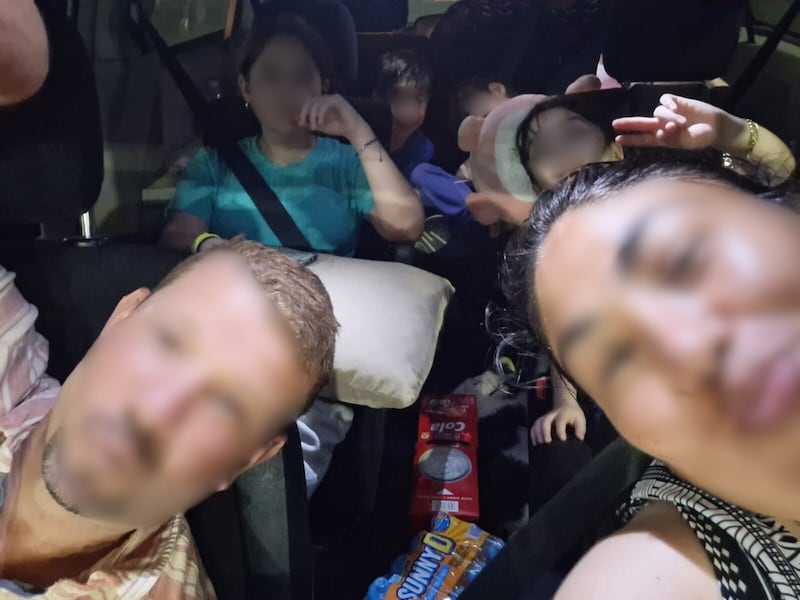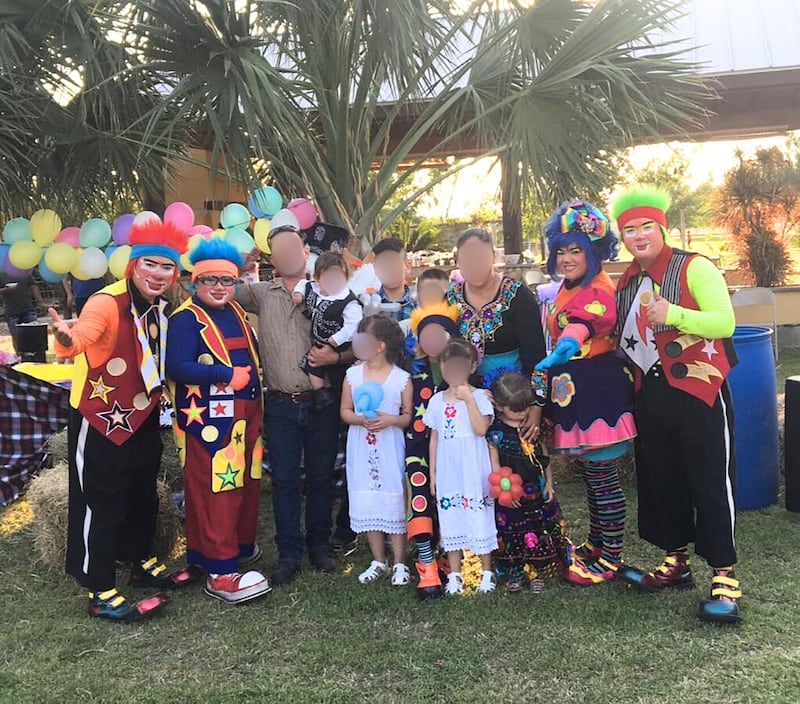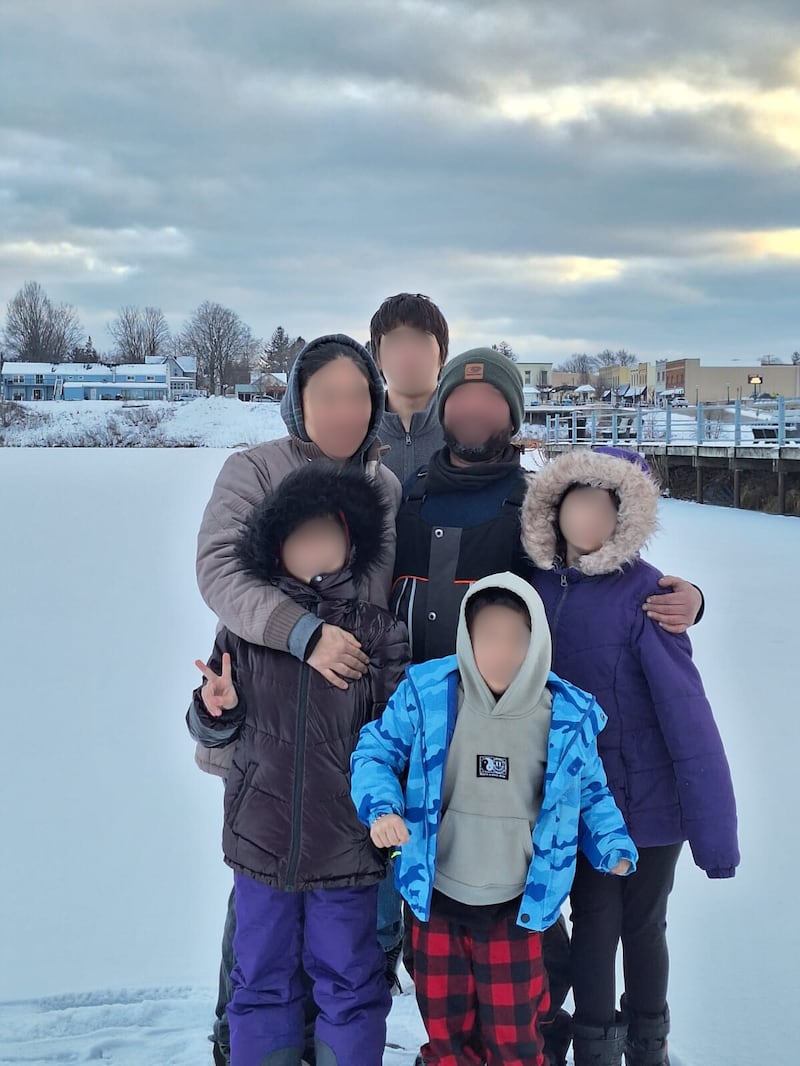An 11-year-old United States citizen deported with her undocumented parents is pleading with the Trump administration to let her family return so she can receive life-saving care.
The girl, who suffers from a “rare brain tumor,” was detained after her family rushed to a Texas hospital in February. She was removed from the U.S. the following day during the second week of President Donald Trump’s second term.
Attorneys for the child, whose symptoms have worsened since being deported, have now filed for humanitarian parole with U.S. Citizenship and Immigration Services, hoping the family will be allowed to return, at least temporarily, so she can receive treatment.
“We’re fighting for my girl’s life,” the child’s mother told NBC News. She added that her daughter isn’t recovering from “just any disease” and that “she is not going to be cured overnight; it’s something that takes time.”

The family has withheld their names from the media for fear that they may be targeted in the rural Mexican village where they currently reside. Danny Woodward, an attorney for the family who works with the Texas Civil Rights Project, told the Daily Beast that U.S. citizens are at risk of being kidnapped and extorted by drug cartels in the area.
“Within a week or two, after they got to where they are, the mom and dad had been leaving the house to do farm work, and they did see some bodies along the side of the road that they believe were victims of criminal or cartel violence,” Woodward told the Beast.
Despite Trump’s migrant crackdown, Woodward said he has “hope” that the child’s humanitarian parole will be granted.

Woodward pointed to a similar case in California, where a four-year-old girl suffering from a life-threatening intestinal illness was granted humanitarian parole in late May after public pleas for deportation relief. Woodward said he requested that the Texas family’s appeal be expedited, but he worries it might still take months.
The family was detained at a U.S. Customs and Border Protection checkpoint on Feb. 3. Woodward said the girl’s parents were driving from their home in Texas’ Rio Grande Valley to see a specialist in Houston after she woke up feeling dizzy with a headache—two symptoms her doctor warned required immediate hospitalization.

This was not the first time the family trekked hours from South Texas to Houston when symptoms emerged, Woodward said. The first instance was in February 2024, when she had a severe seizure that required medical transport by helicopter. The scare left her mom fearing that the girl, then 9, was “dying in her arms,” Woodward said. Doctors in Houston ultimately saved her life.
The family had made the same trip about five other times in 2024, all without issue, Woodward said. They carried a letter from the hospital that explained their reason for traveling without legal documentation. Woodward said hospitals in the Rio Grande Valley cannot handle the girl’s condition, which doctors described as being so rare, they considered writing a report about it for publication in a medical journal. This meant the family had to seek treatment in Houston.

February marked the family’s first trip to Houston during Trump’s presidency, and it quickly became clear that procedures had changed, Woodward said.
On their way north, the family encountered one of the numerous checkpoints located within 100 miles of the Southern Border—checkpoints they had cleared without issue on previous trips. They were asked to provide documentation by a federal agent, so they showed their birth certificates and a letter provided by the hospital, Woodward said, but those were no longer sufficient.
The family, including its three U.S. citizen children, was detained and taken to a holding facility in South Texas, where they stayed the night. The sick child never made it to the hospital, Woodward said, and the family was removed from the country the following day.
The rapid removal meant they did not have time to consult with a lawyer, Woodward said. Instead, he said that the girl’s mom spoke to an attorney for just three minutes by phone before she was allegedly pressured to hang up by officials.
Woodward said no member of the family has been convicted of a crime in the U.S. aside from immigration-related charges. He declined to specify when the family entered the country, but stated that the family’s oldest child, an 18-year-old, was a U.S. citizen because he was born in the United States.
The parents are working in fields in Mexico to cover expenses, Woodward said, but the money does not come close to covering the high costs of their daughter’s treatment or anti-seizure medication. Procuring treatment and medicine in Mexico is also complicated because the girl is not a Mexican citizen.
“They’ve been struggling,” Woodward said. “I think they have a system worked out now, but they were even struggling to get her anti-seizure medication because the doctors have some very precise formula that I guess only U.S. pharmacies will do.”
Woodward said he has seen an increase in messages from Trump voters who say they did not vote for the deportation of non-criminal migrants with a deathly sick U.S. citizen child.
“We’ve been seeing messages from a lot of different people across the political spectrum saying, like, ‘OK, maybe we voted for immigration crackdowns or more immigration enforcement, but we didn’t vote for this,’” he said. “You know, deporting 10-year-olds, U.S. citizen children. I think that this humanitarian parole application is kind of a chance to send that message and just say, ‘OK, we hear you on that,’ like, ‘this wasn’t the right way to go with this particular case.’”
The post Deported Child With Rare Brain Tumor Begs Trump Admin to Save Her Life appeared first on The Daily Beast.




